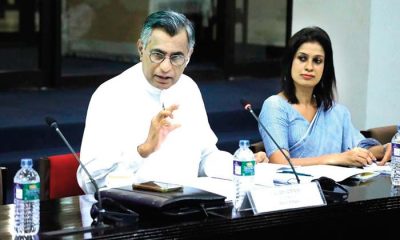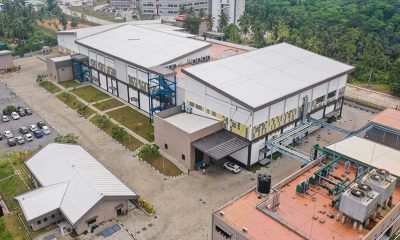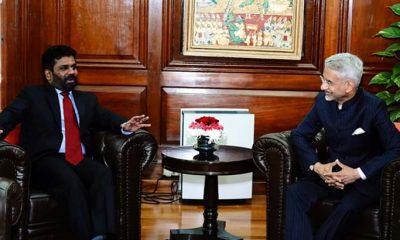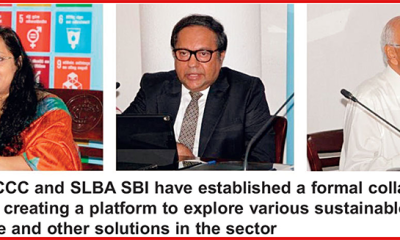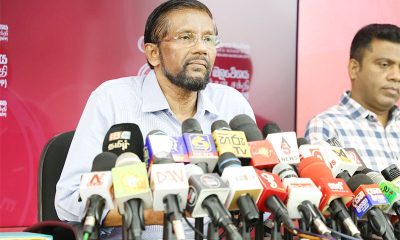News
Without investment into laboratories, SL will be plagued by low quality medicine – Expert

By Rathindra Kuruwita
While 80 percent of medicinal drugs are imported, Sri Lanka does not have facilities to test these drugs, and there is nothing to prevent more bad drugs from entering Sri Lanka in the future, former Chief Epidemiologist of the Ministry of Health and former President of the College of Community Physicians of Sri Lanka (CCPSL), Dr. Nihal Abeysinghe, said.
He added that when the National Medicines Regulatory Authority (NMRA) was established in 2015, then Health Minister Rajitha Senarathne promised to establish a laboratory within a short period.
“In the first decades following independence, we spent a lot of money on healthcare. However, this has changed in the past few decades. We have neglected to do things that are of utmost importance. I was at the epidemiology unit for 21 years, and because we know we can’t test drugs or vaccines, we do a lot of desk research before ordering any drug. This is what we have been doing as doctors,” he said.
Dr. Abeysinghe added that when registering a drug in Sri Lanka, a group of experts conducts their own independent survey on the quality of the drug. Those in charge of registration, currently the NMRA, study reports on drug trials, journey articles, reports on whether there have been any side effects, etc.
“This process has been disrupted in the past few years, and we are now seeing the consequences. There are issues with the Indian-made anaesthetic Bupivacaine. A few months ago, Prednisolone eye drops, another Indian drug, made a number of people lose their eyesight. This is a medium-term result of the economic crisis. The short-term consequences were the queues,” he said.
Dr. Abeysinghe said Sri Lanka is facing a serious nutrition crisis, and the consequences of this will be felt in the long term.
“We have got both the above-mentioned drugs from the Indian credit line. Perhaps we need to buy drugs from an Indian manufacturer under the credit line, but we could have done our research and found a good company. There are good drug manufacturers in India,” he said. The former chief epidemiologist said that he has been listening to the statements of senior officials and politicians about the deaths caused by low-quality drugs.
“They are taking it lightly. The NMRA head said that some drugs can have side effects, whether they are registered or not. This is also probably an indication that they know there will be other cases like this. If you look at the circular asking doctors not to use the anesthetic drug, the Health Ministry says that this is an unregistered drug. So they have released an unregistered drug for use in surgeries. How is this acceptable?” he asked.
Dr. Abeysinghe said that Sri Lankan governments have not understood health priorities. Visionaries like Dr. Senaka Bibile have been talking about the need to establish a high-tech lab to test imported medicines since 50–60 years ago, he said.
“These visionaries were ignored. However, thanks to the work of the Sri Lankan medical establishment, the consequences of the lack of testing facilities have not been disastrous until now. However, now we are seeing the consequences of our lack of investment,” he said.
A large number of medical practitioners also left the country following the economic crisis, he said. Most Sri Lankan specialist doctors are trained in the United Kingdom or Australia, so they find it easy to migrate, Dr. Abeysinghe, who was also a WHO consultant, said.
“Regular doctors sat for entrance exams to join the medical services of other countries. Some left after finding jobs, and others left expecting to find jobs. Most doctors have found jobs. A lot of nurses and medical technicians are also leaving the country. We are seeing the impact,” he said.
Latest News
Sun directly overhead Delft, Pooneryn, Elephant pass and Chundikulam at about 12:10 noon today (14th)

On the apparent northward relative motion of the sun, it is going to be directly over the latitudes of Sri Lanka during 05th to 14th of April in this year.
The nearest areas of Sri Lanka over which the sun is overhead today (14th) are Delft, Pooneryn, Elephant pass and Chundikulam at about 12:10 noon.
Business
IMF staff team concludes visit to Sri Lanka
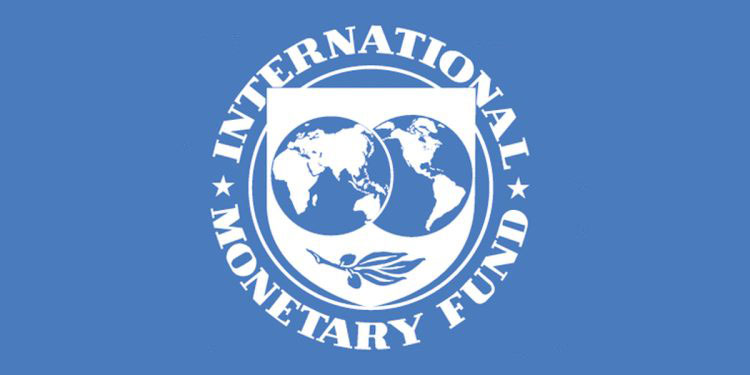
An International Monetary Fund (IMF) team led by Evan Papageorgiou visited Colombo from April 3 to 11, 2025. After constructive discussions in Colombo, Mr. Papageorgiou issued the following statement:
“Sri Lanka’s ambitious reform agenda supported by the IMF Extended Fund Facility (EFF) continues to deliver commendable outcomes. The post-crisis growth rebound of 5 percent in 2024 is impressive. Inflation declined considerably in recent quarters and has fallen to ‑2.6 percent at end-March 2025. Gross official reserves increased to US$6.5 billion at end-March 2025 with sizeable foreign exchange purchases by the central bank. Substantial fiscal reforms have strengthened public finances.
“The recent external shock and evolving developments are creating uncertainty for the Sri Lankan economy, which is still recovering from its own economic crisis. More time is needed to assess the impact of the global shock and how its implications for Sri Lanka can be addressed within the contours of its IMF-supported program.
“The government’s sustained commitment to program objectives is ensuring policy continuity and program implementation remains strong. Going forward, sustaining the reform momentum is critical to safeguard the hard-won gains of the program and put the economy on a path toward lasting macroeconomic stability and higher inclusive growth.
“Against increased global uncertainty, sustained revenue mobilization efforts and prudent budget execution in line with Budget 2025 are critical to preserve the limited fiscal space. Boosting tax compliance, including by reinstating an efficient and timely VAT refund mechanism, will help contribute to revenue gains without resorting to additional tax policy measures. Avoiding new tax exemptions will help reduce fiscal revenue leakages, corruption risks and build much needed fiscal buffers, including for social spending to support Sri Lanka’s most vulnerable. Restoring cost recovery in electricity pricing will help minimize fiscal risks arising from the electricity state-owned enterprise.
“The government has an important responsibility to protect the poor and vulnerable at this uncertain time. It is important to redouble efforts to improve targeting, adequacy, and coverage of social safety nets. Fiscal support needs to be well-targeted, time-bound, and within the existing budget envelope.
“While inflation remains low, continued monitoring is warranted to ensure sustained price stability and support macroeconomic stability. Against ongoing global uncertainty, it remains important to continue rebuilding external buffers through reserves accumulation.
“Discussions are ongoing, and the authorities are encouraged to continue to make progress on restoring cost-recovery electricity pricing, strengthening the tax exemptions framework, and other important structural reforms.
“The IMF team held meetings with His Excellency President and Finance Minister Anura Kumara Dissanayake, Honorable Prime Minister Dr. Harini Amarasuriya ; Honorable Labor Minister and Deputy Minister of Economic Development Prof. Anil Jayantha Fernando, Honorable Deputy Minister of Finance and Planning Dr. Harshana Suriyapperuma, Central Bank of Sri Lanka Governor Dr. P. Nandalal Weerasinghe, Secretary to the Treasury Mr. K M Mahinda Siriwardana, Senior Economic Advisor to the President Duminda Hulangamuwa, and other senior government and CBSL officials. The team also met with parliamentarians, representatives from the private sector, civil society organizations, and development partners.
“We would like to thank the authorities for the excellent collaboration during the mission. Discussions are continuing with the goal of reaching staff-level agreement in the near term to pave the way for the timely completion of the fourth review. We reaffirm our commitment to support Sri Lanka at this uncertain time.”
News
New Year dawns at the auspicious time of 03.21 a.m. tomorrow (14).

The Sinhala and Tamil New Year will dawn at the auspicious time of 03.21 a.m. tomorrow (14th Monday).
The auspicious time to light the hearth and prepare the first meal is at 0404 am on Monday (14) facing South.
The auspicious hour to commence work, perform the first transactions and partaking of the first meal is at 0644 am facing South dressed in white coloured clothes.
-

 News2 days ago
News2 days agoSuspect injured in police shooting hospitalised
-

 Features3 days ago
Features3 days agoRobbers and Wreckers
-

 Features5 days ago
Features5 days agoSri Lanka’s Foreign Policy amid Geopolitical Transformations: 1990-2024 – Part III
-

 Midweek Review5 days ago
Midweek Review5 days agoInequality is killing the Middle Class
-

 Business2 days ago
Business2 days agoSanjiv Hulugalle appointed CEO and General Manager of Cinnamon Life at City of Dreams Sri Lanka
-
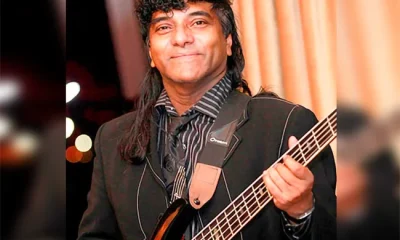
 Features6 days ago
Features6 days agoA brighter future …
-

 Business4 days ago
Business4 days agoNational Anti-Corruption Action Plan launched with focus on economic recovery
-
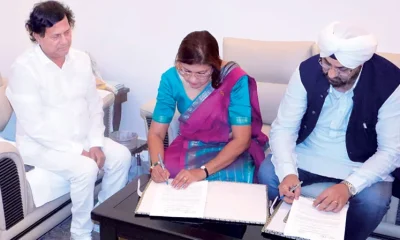
 News5 days ago
News5 days agoIChemC signs MoU with KIIT, India


